Squeezed between the gigantic hubs of Shibuya and Ebisu in the concrete heart of Tokyo, there lies a house on the side of the river, full of irresistible surprises and oddities. It’s a tiny place, even when taking into consideration Tokyo’s proportionate scale of living. However, to describe Hanayo and her daughter Tenko’s home as merely tiny would be misguided. It’s a rich place – a Wunderkammer of the odd present moment – that serves as an archive of the last twenty eventful years spent living between Tokyo, London and Berlin.
Hanayo’s life has been full of contrasts and adventures: after she decided to drop out of art school she trained as a Junior Geisha in Tokyo’s famous Mukojima district before deciding to follow her passion for Punk and relocating to London, and later Berlin, to pursue her career as a multifaceted artist. In 2011 Hanayo and Tenko decided to leave Berlin behind and move to Tokyo. What started as a vague experiment has now lasted for more than three years. Despite Hanayo’s occasional melancholic thoughts about their old spacious Berlin apartment and Tenko missing the taste of original gummi bears, they have both found a new home and creative playground in Tokyo. After spending a day together on the tatami we took a walk around the neighborhood, stopping by Tenko’s favorite lunch place to indulge in the best Arrabiata in town.
This portrait is part of our ongoing collaboration with ZEIT Online who present a special curation of our pictures on their site.
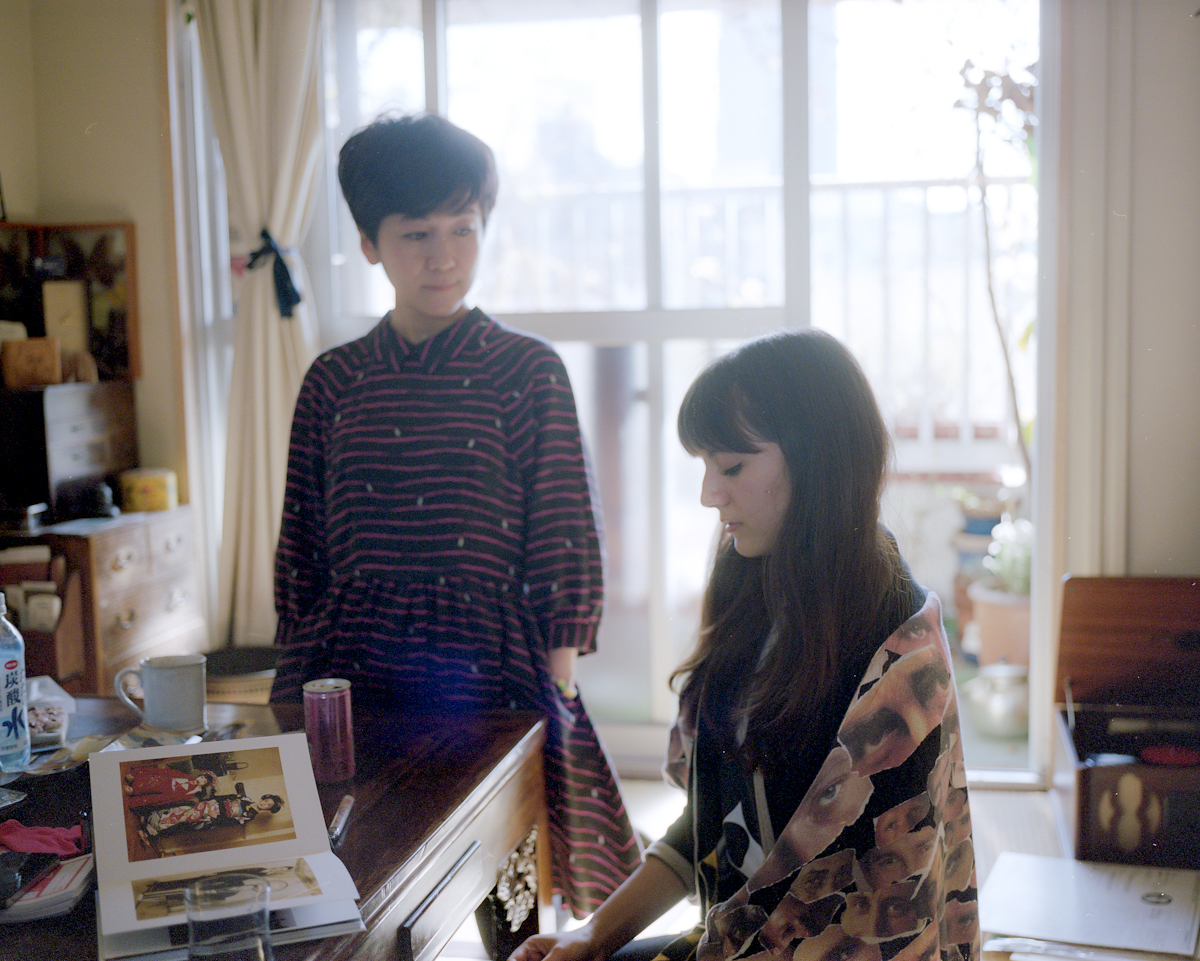
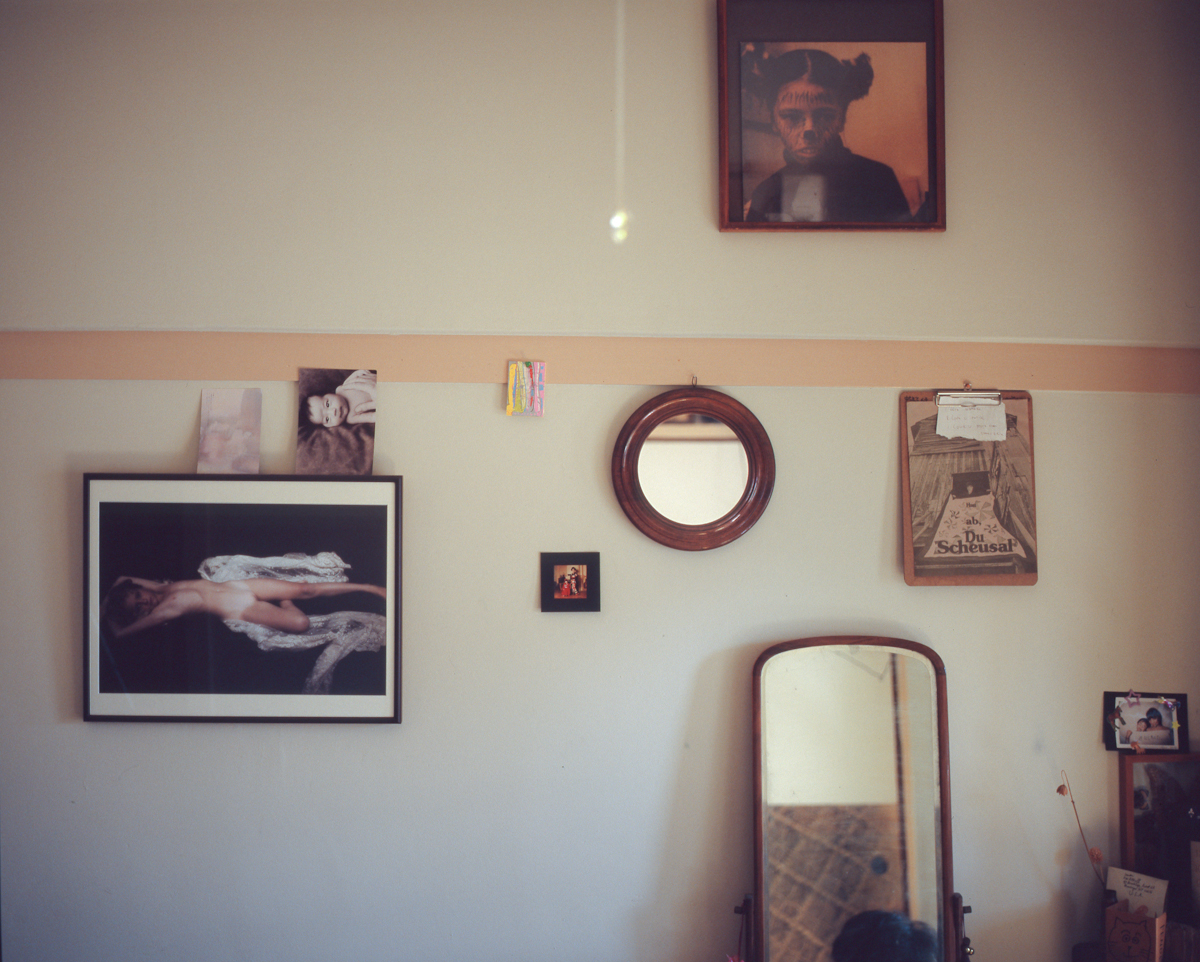
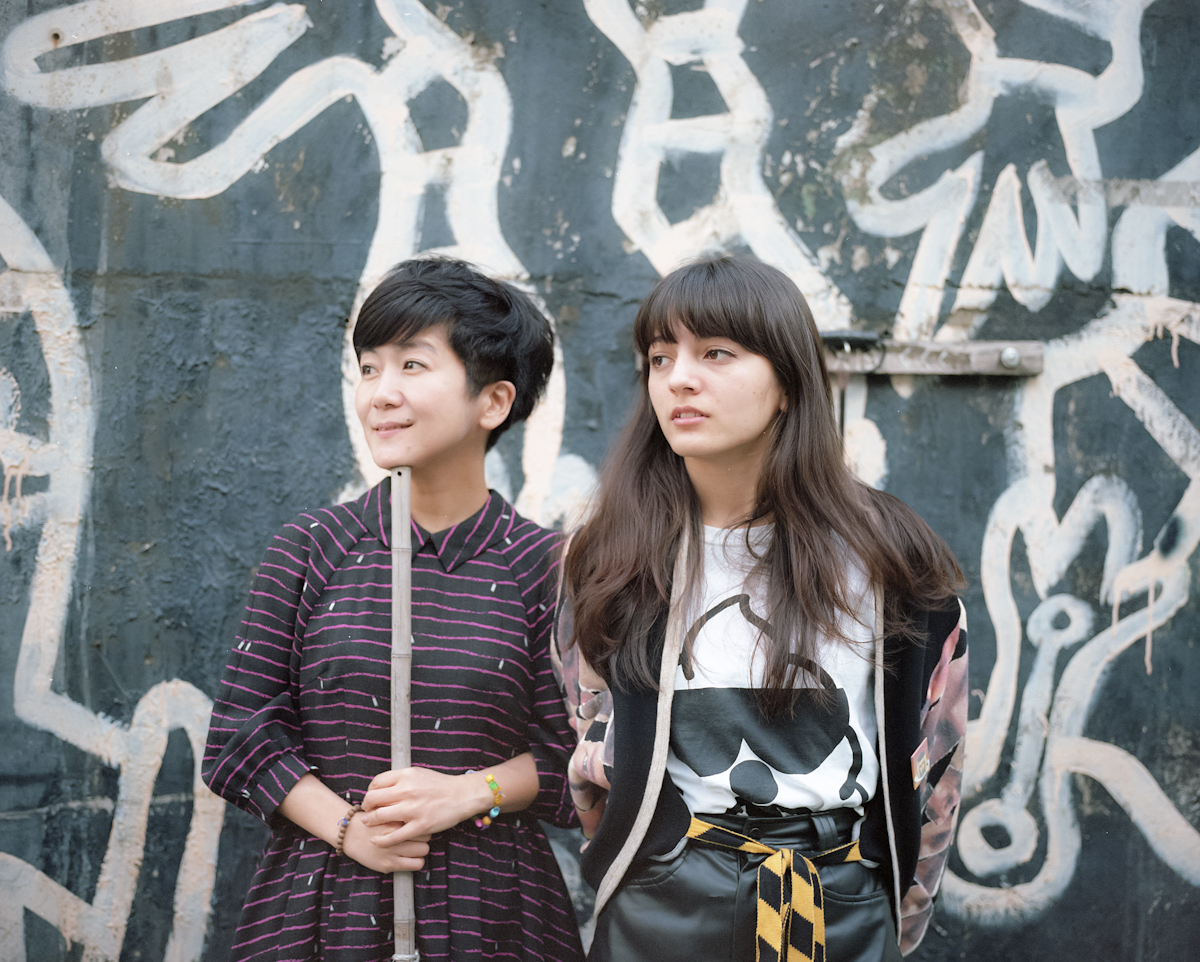
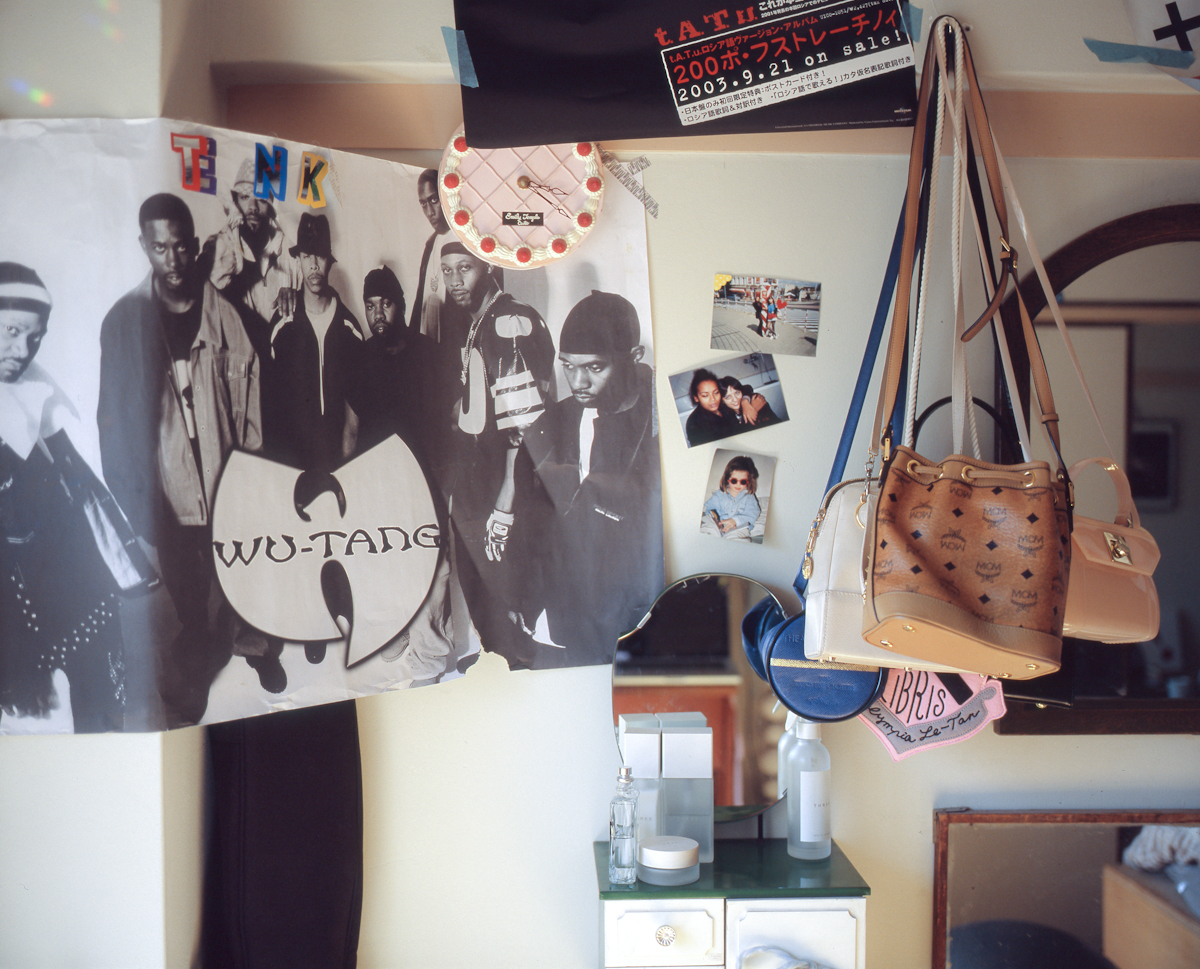
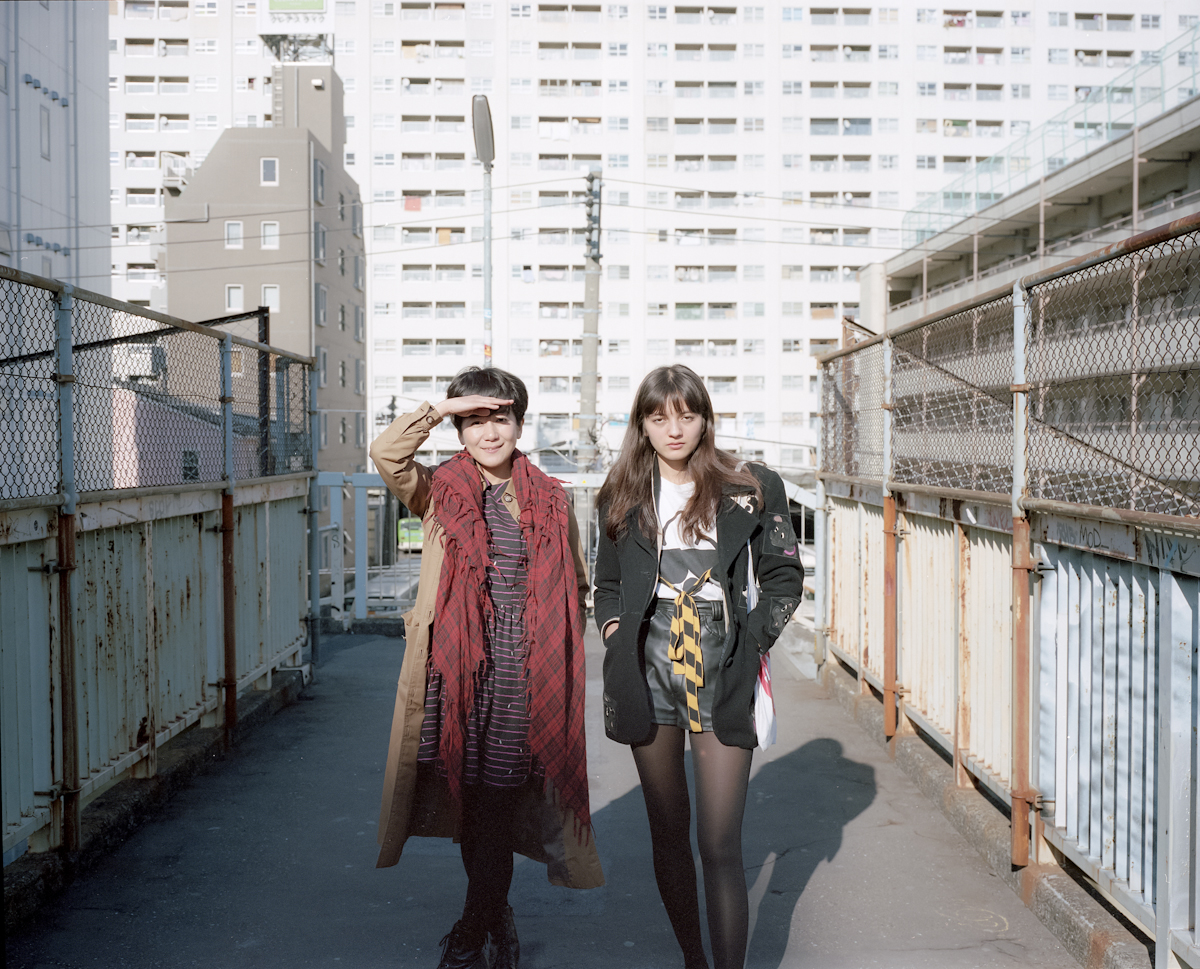
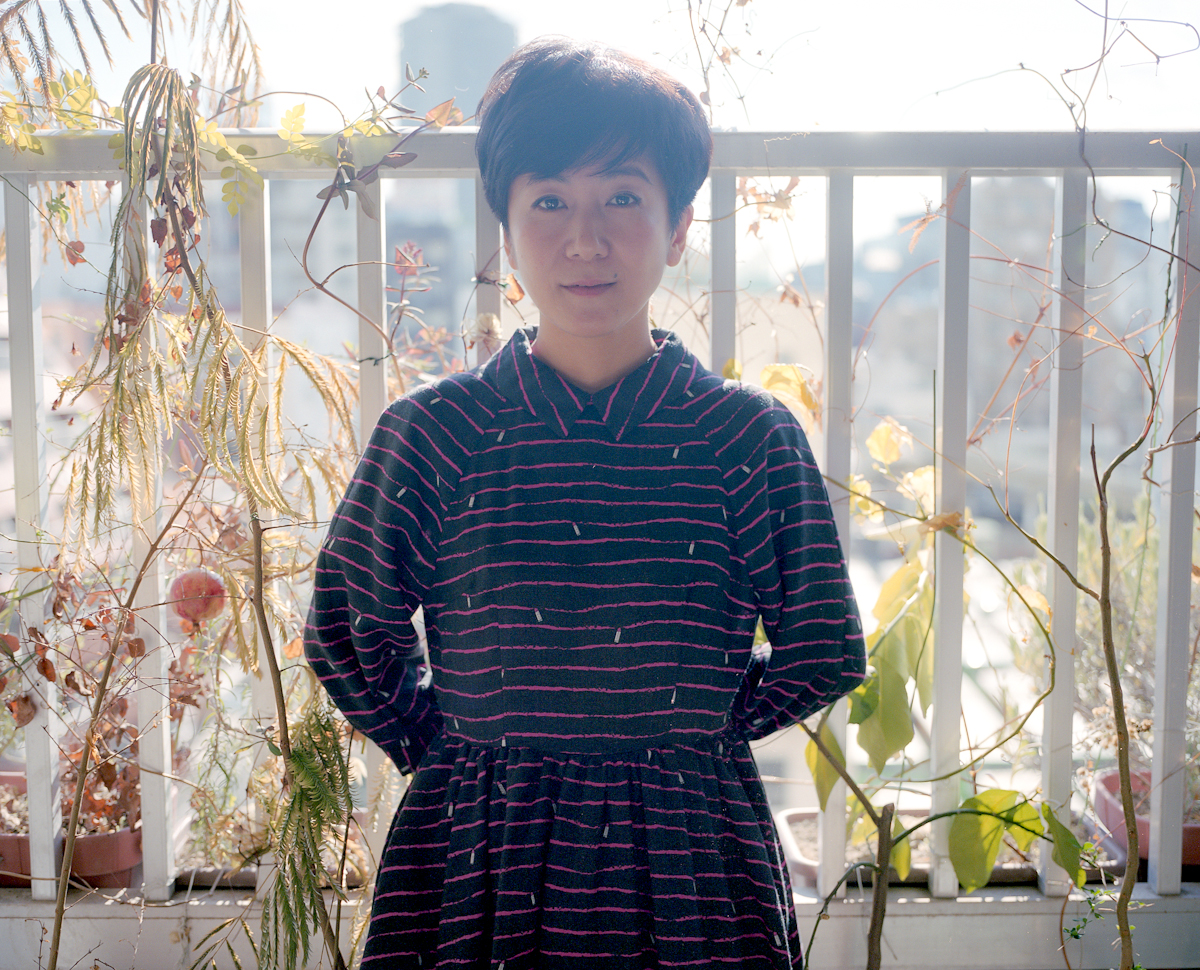
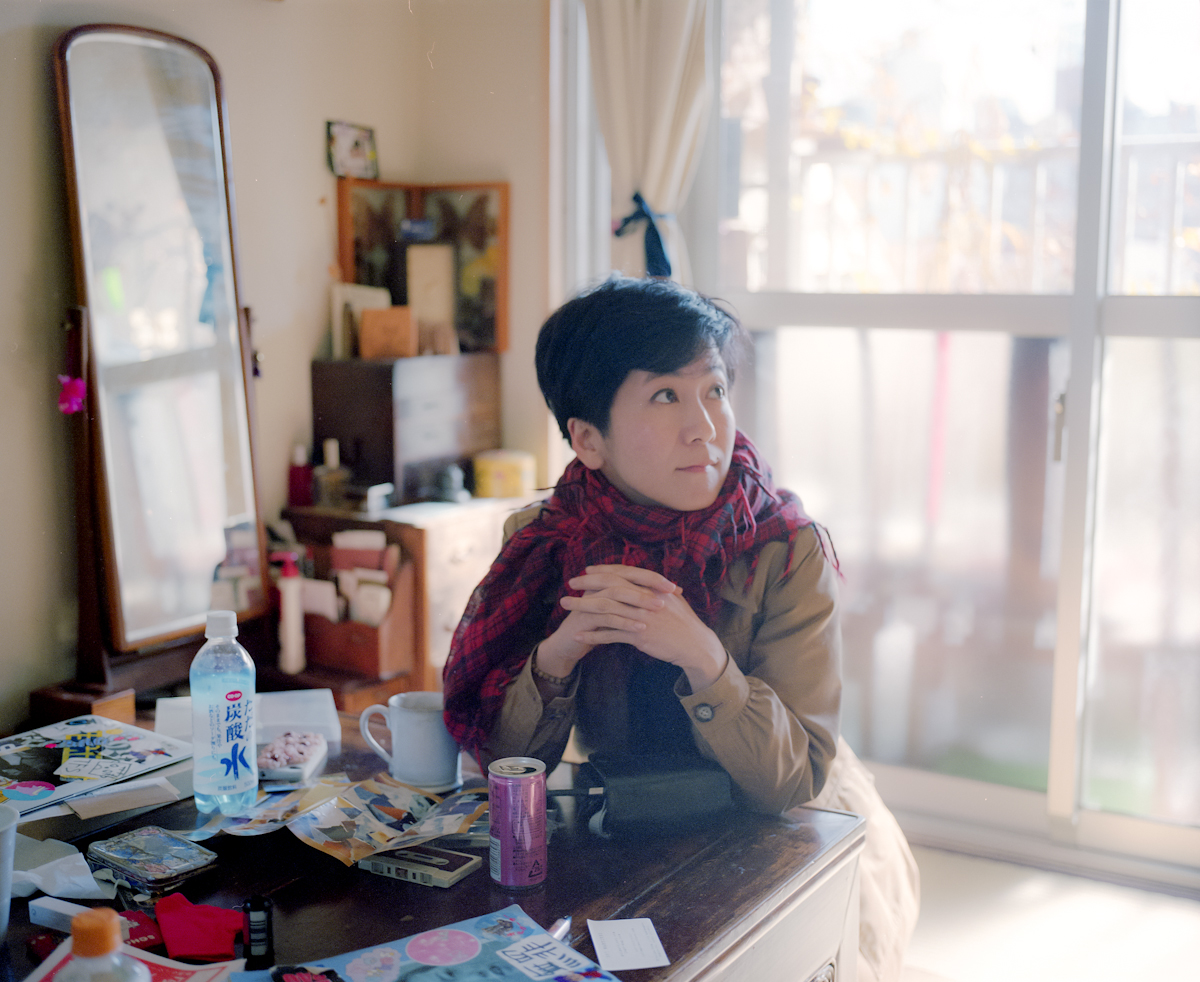
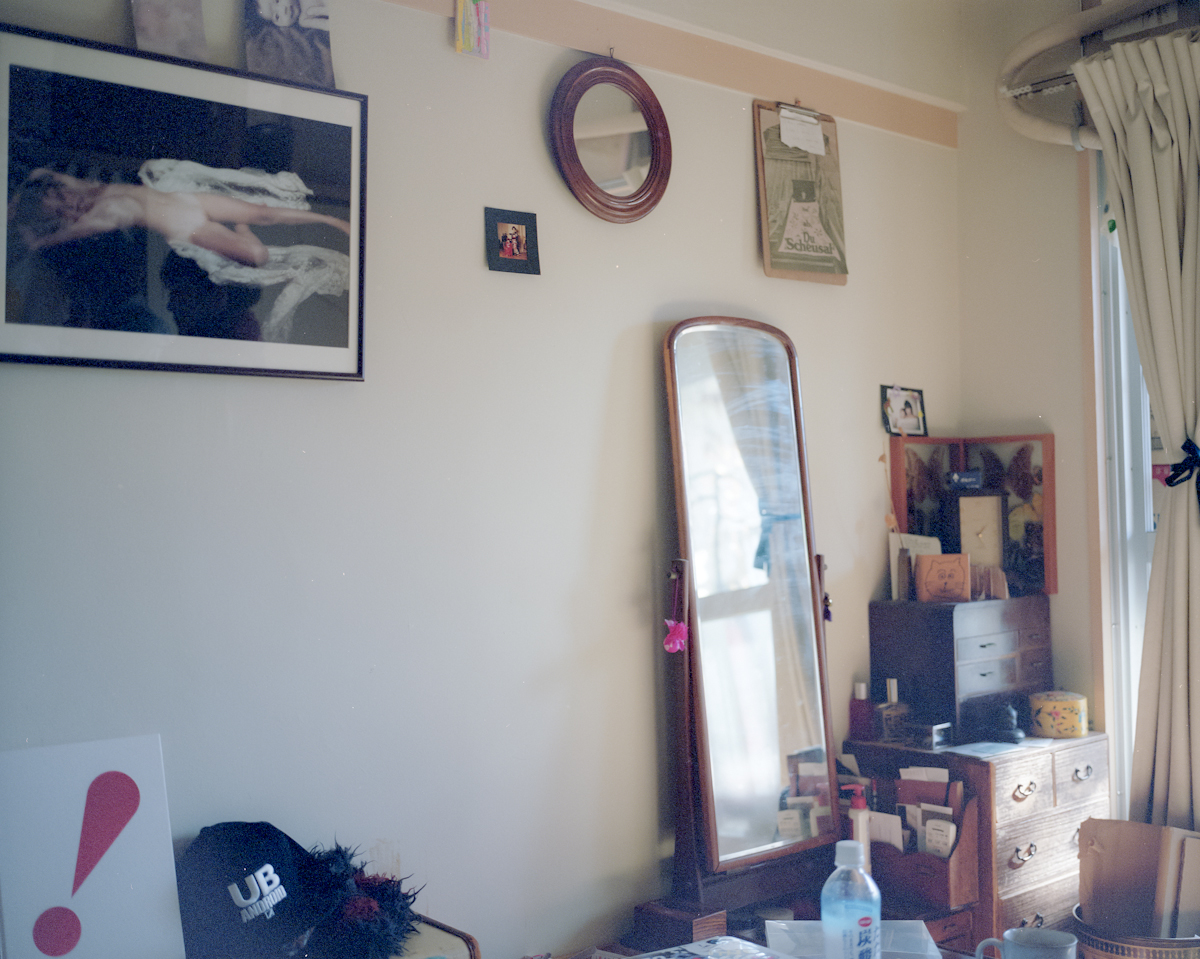
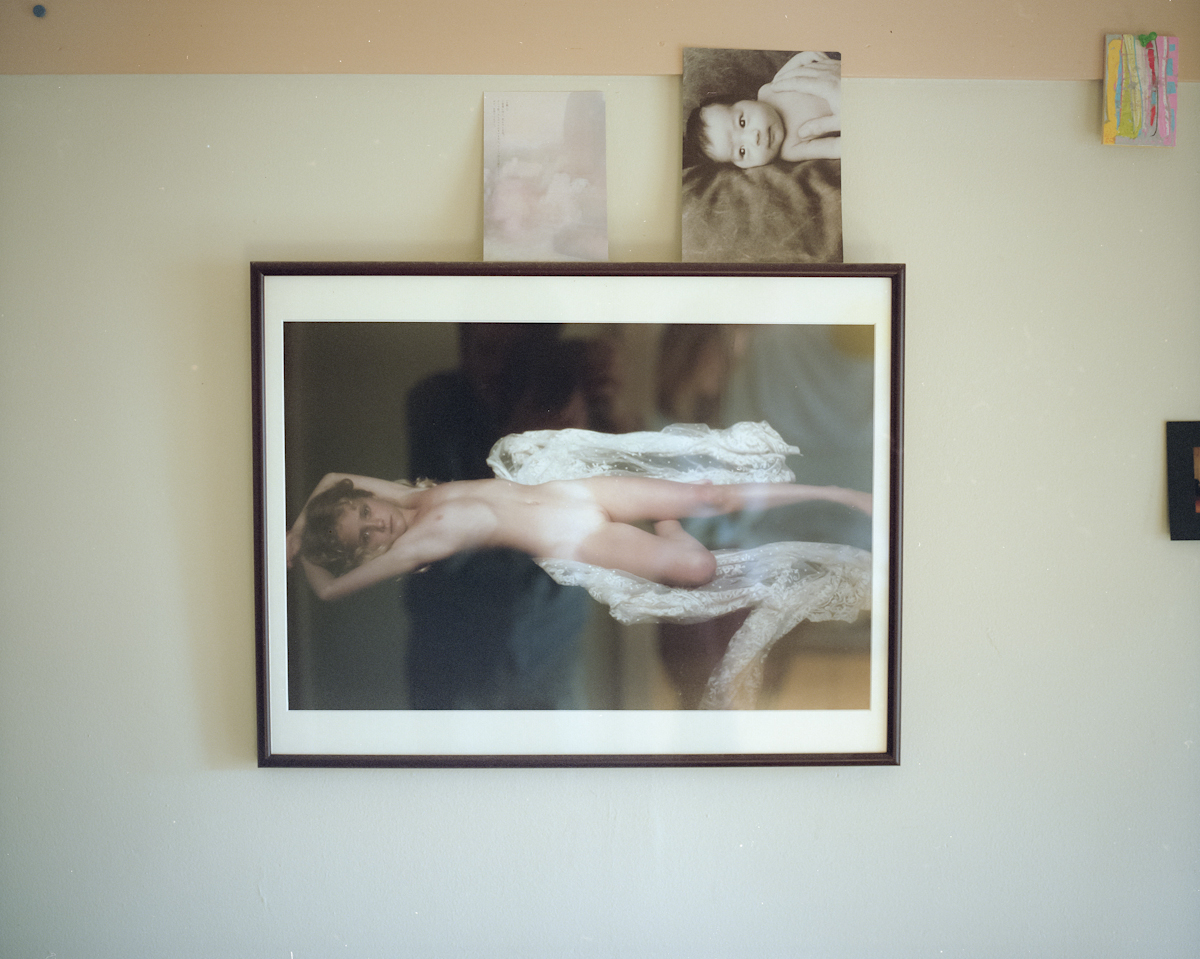
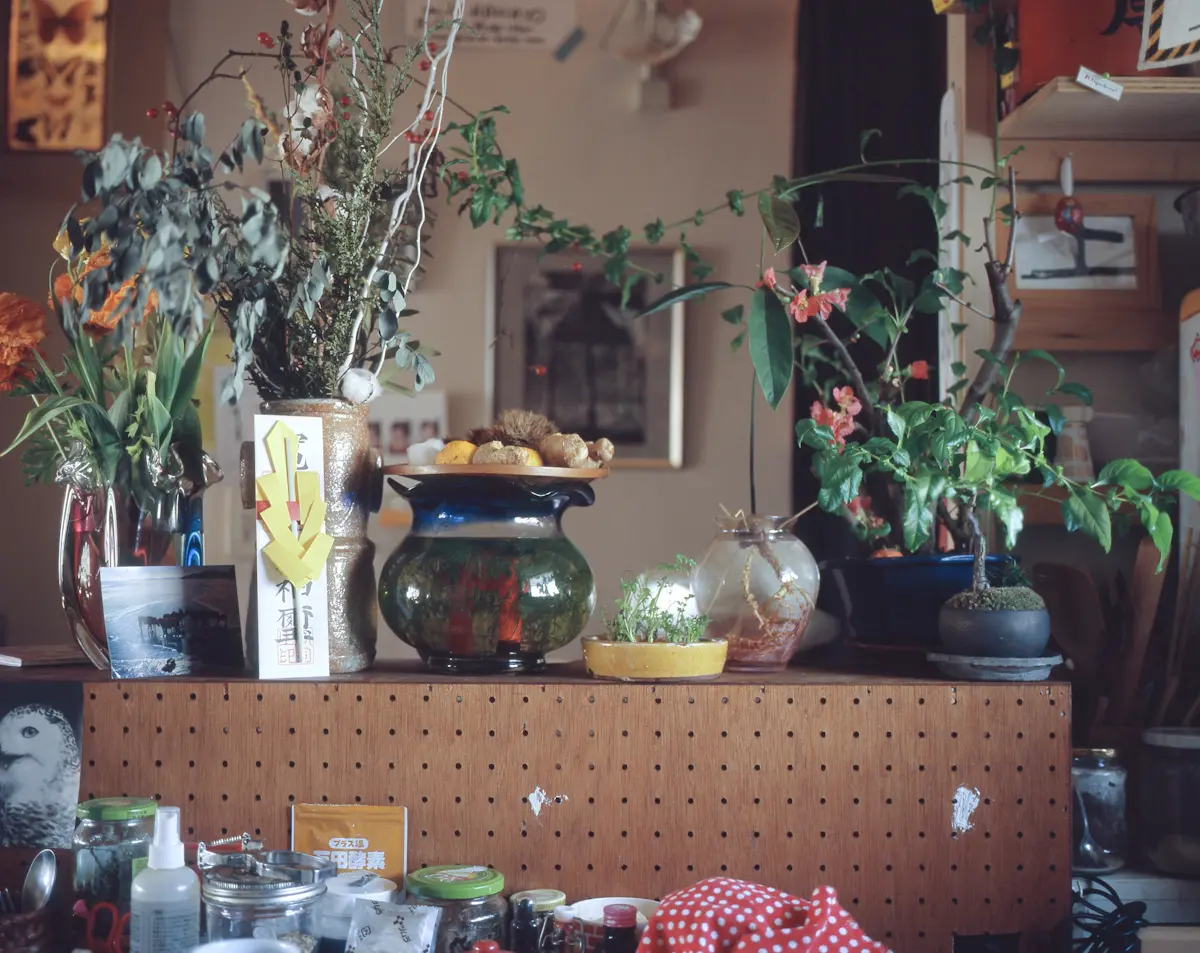
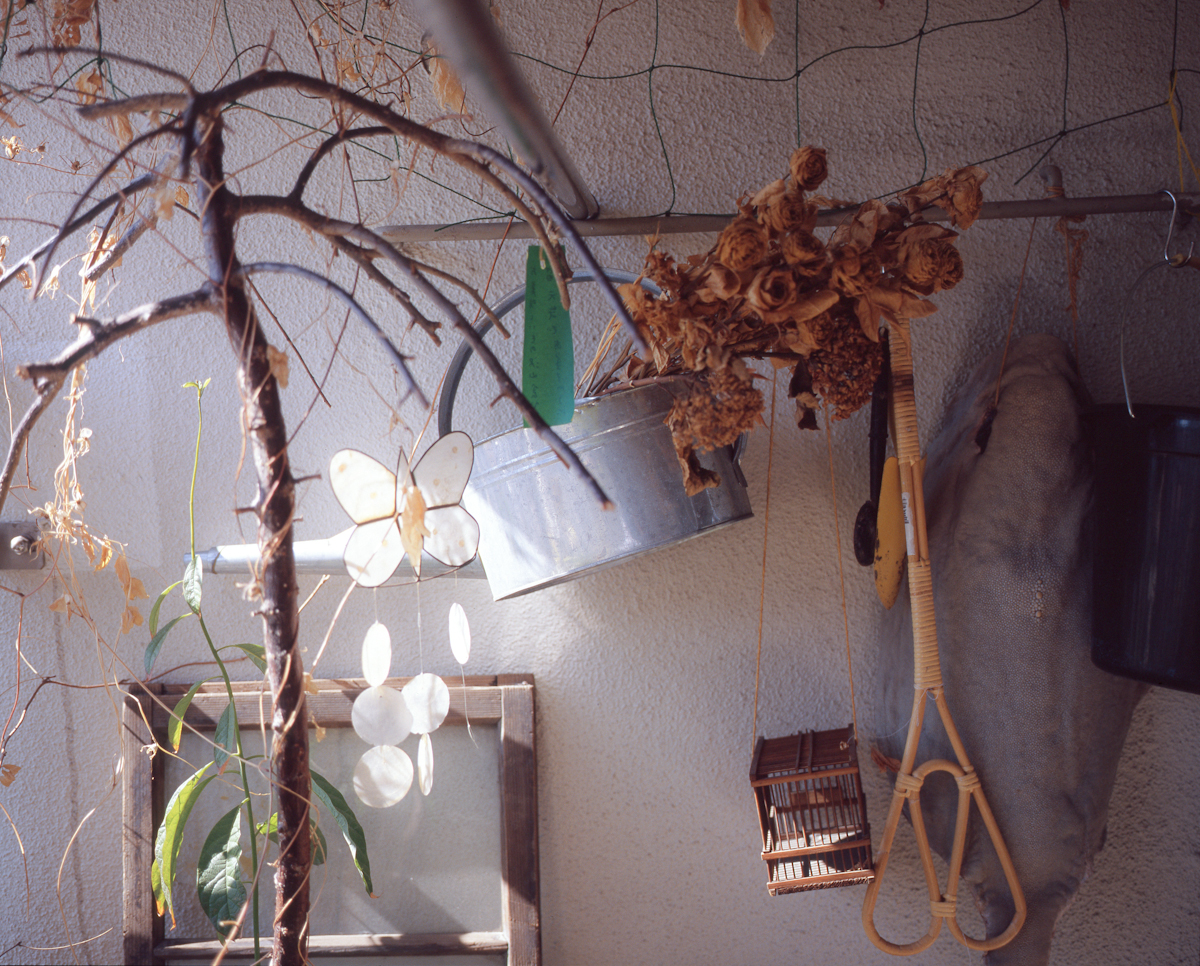
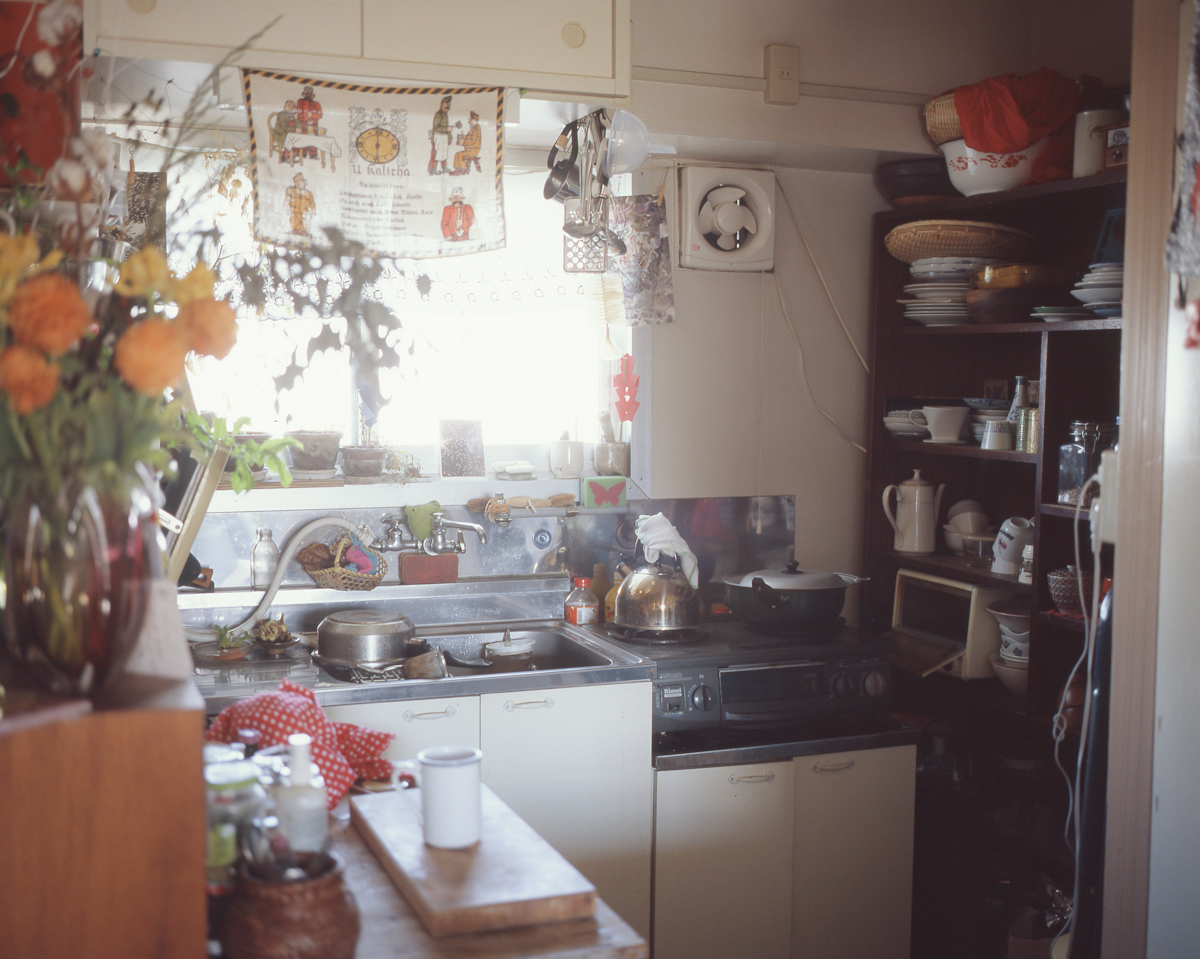
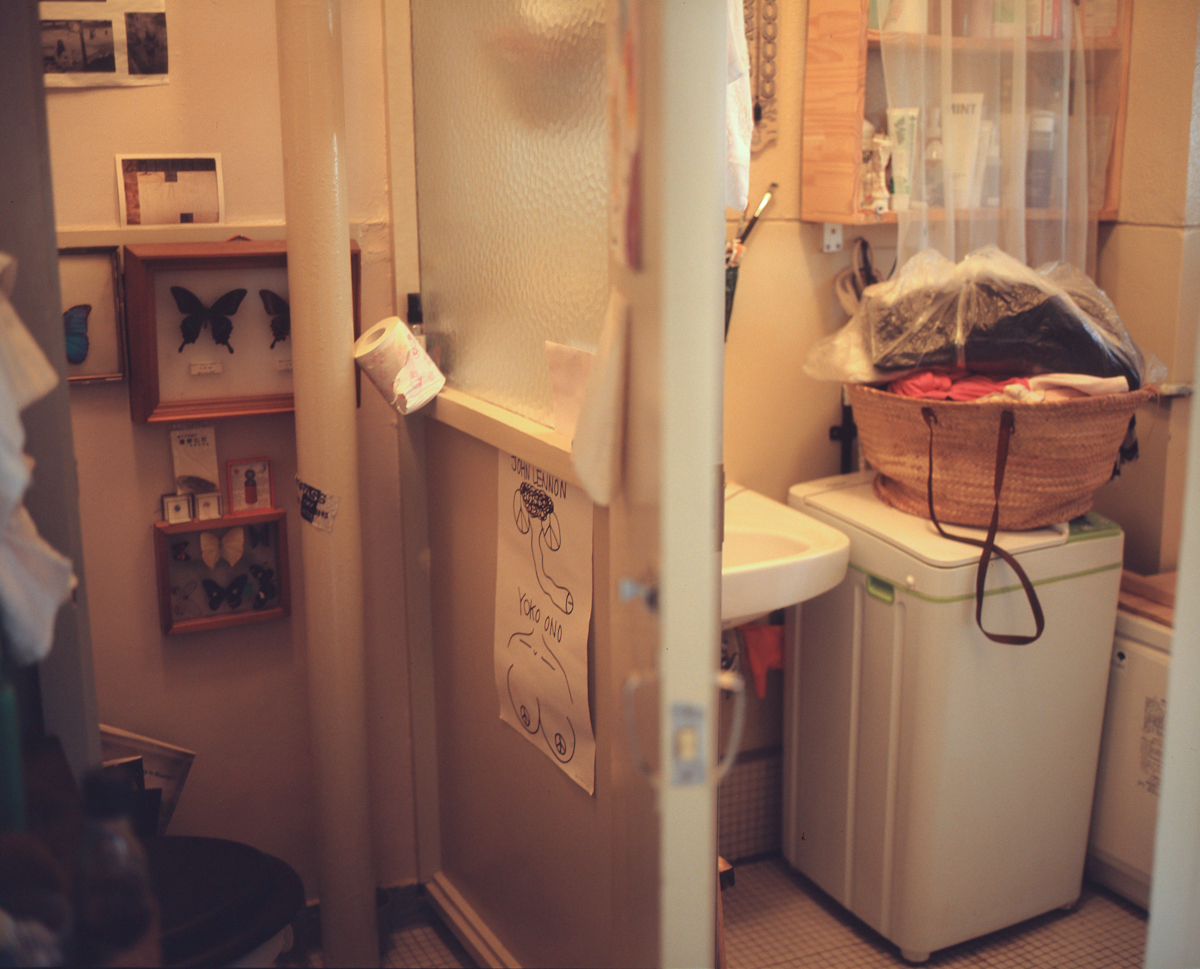
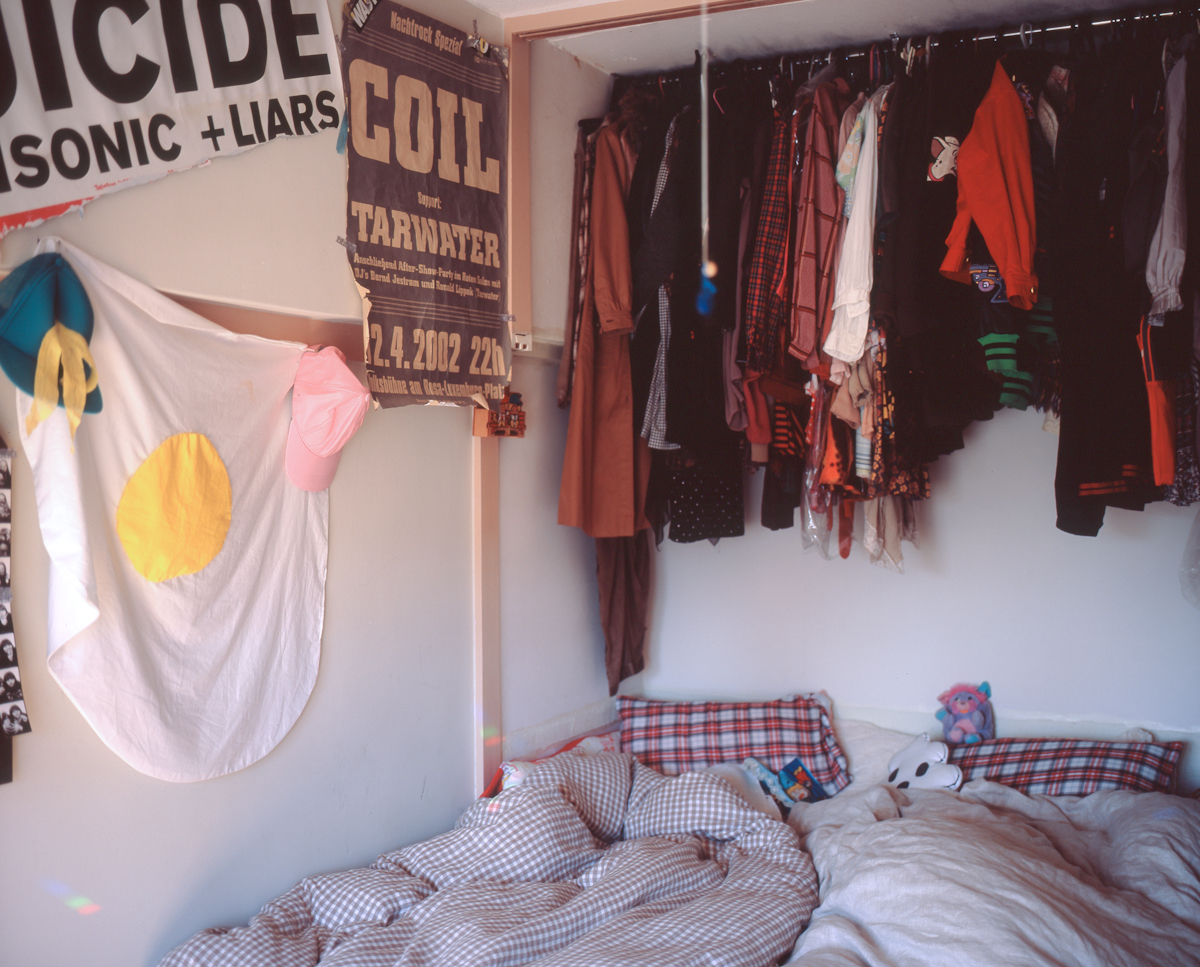
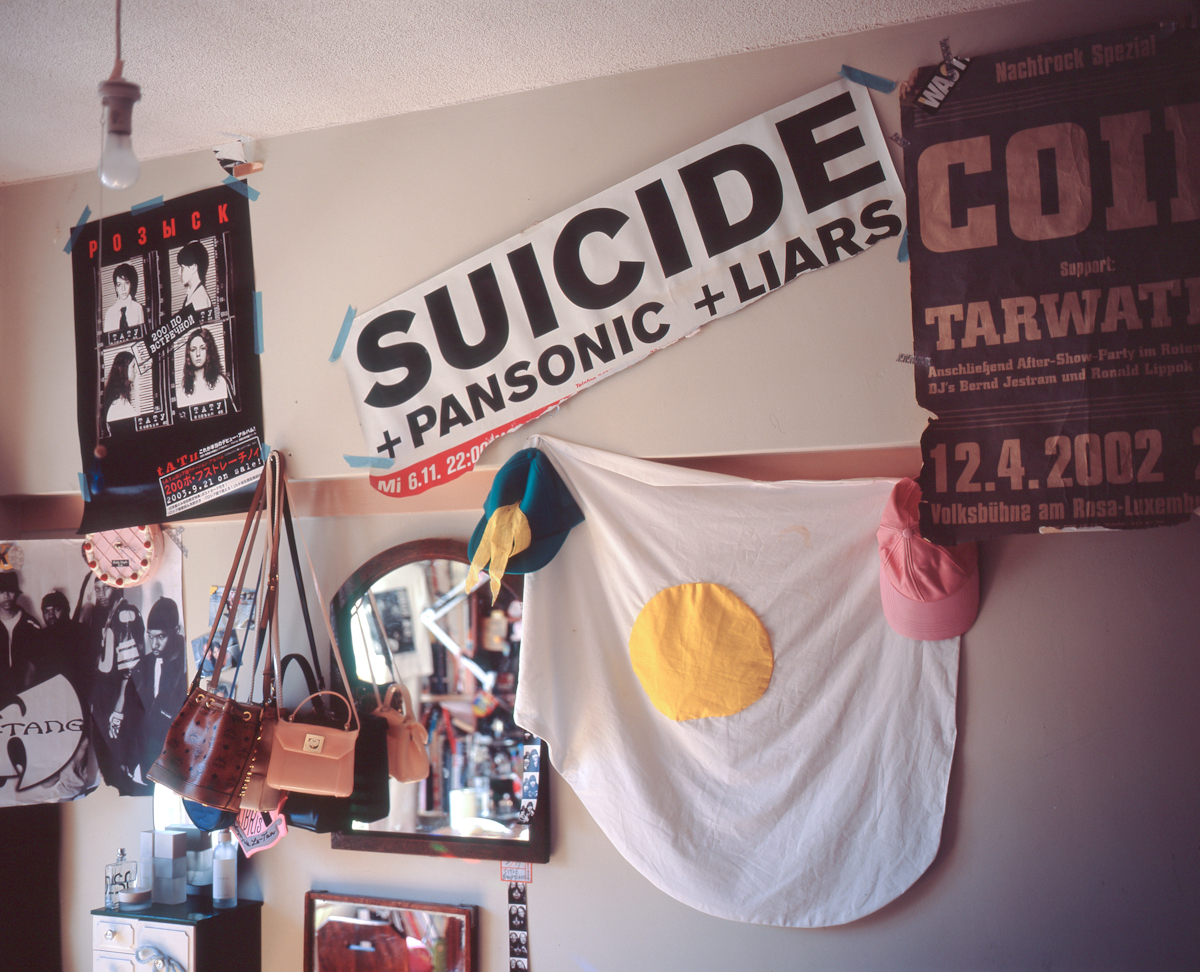
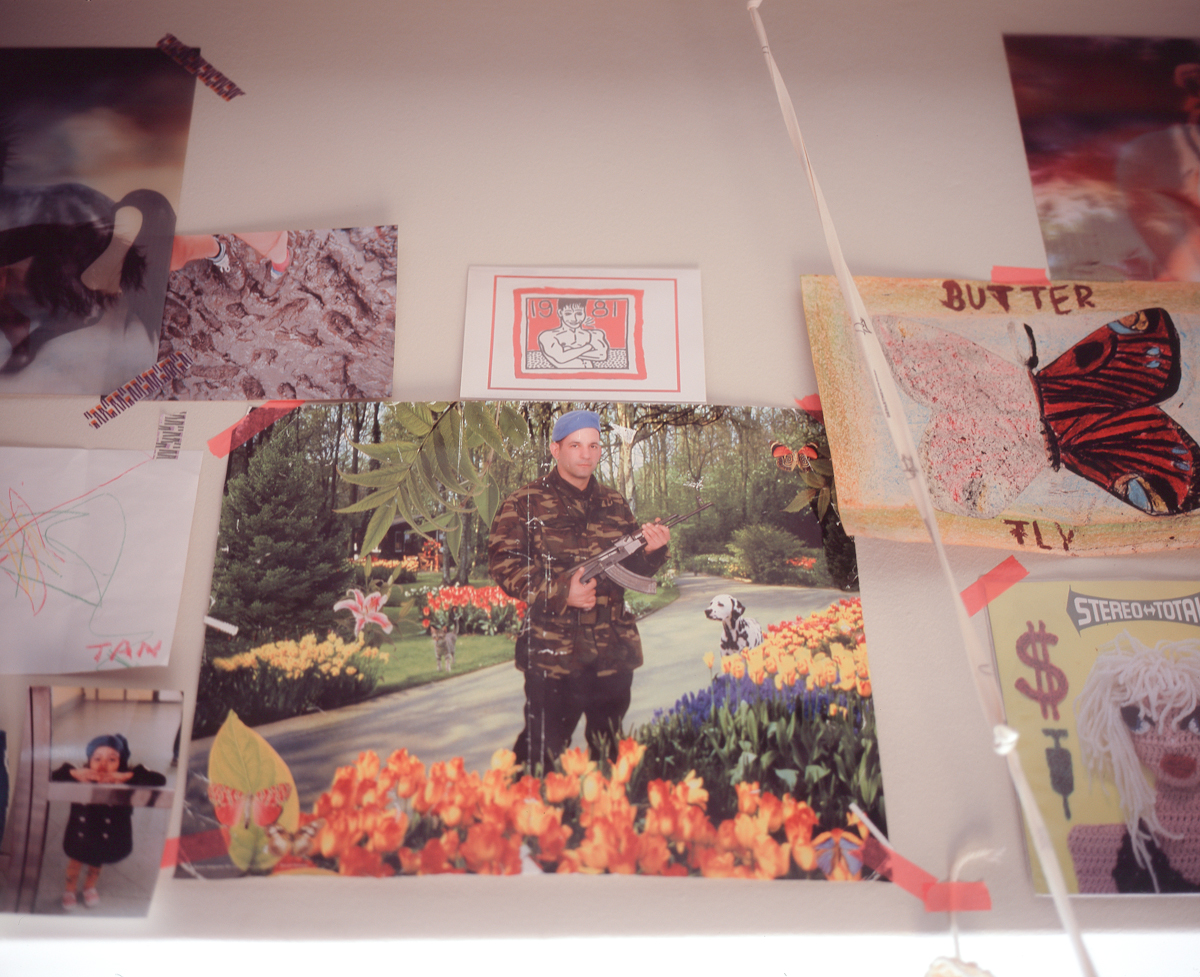
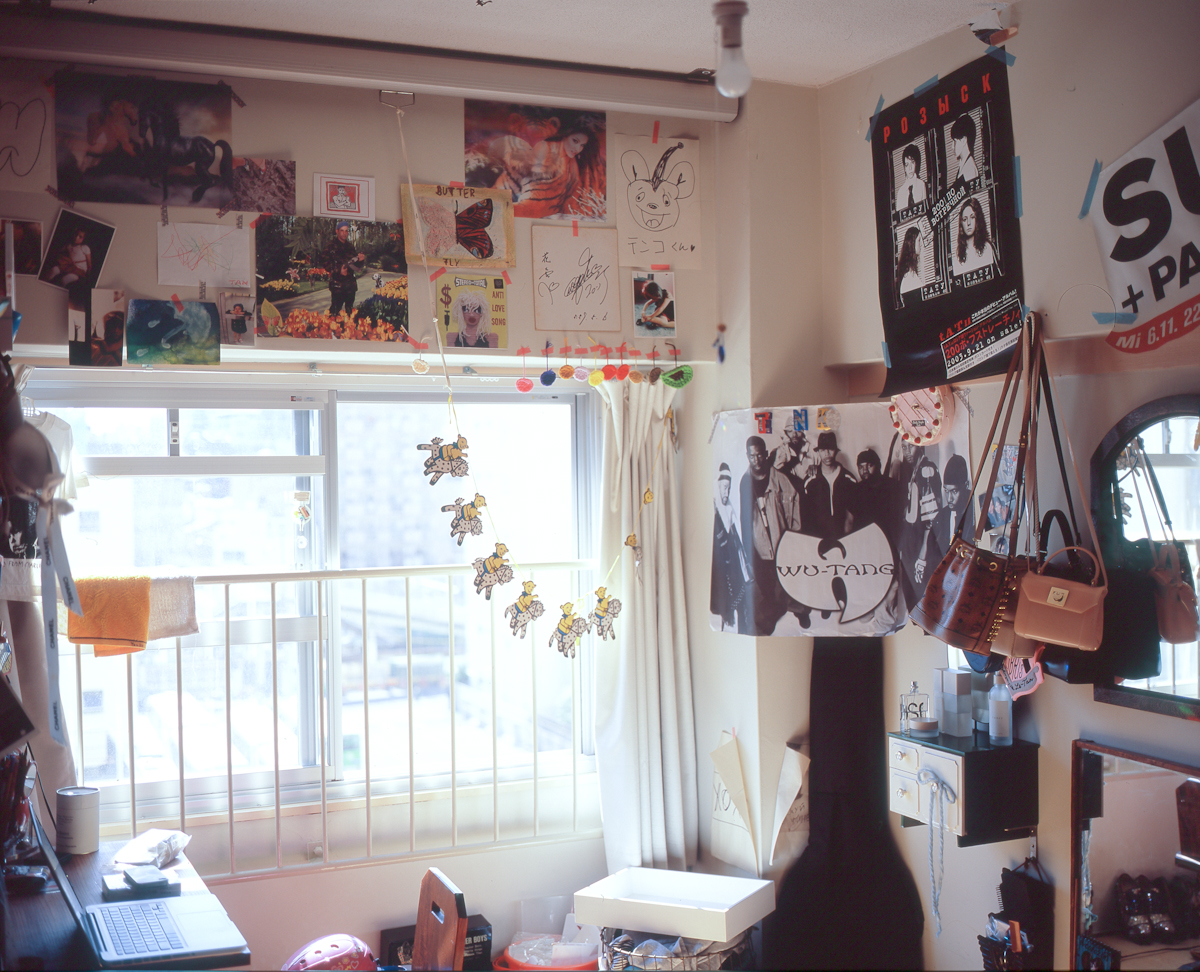
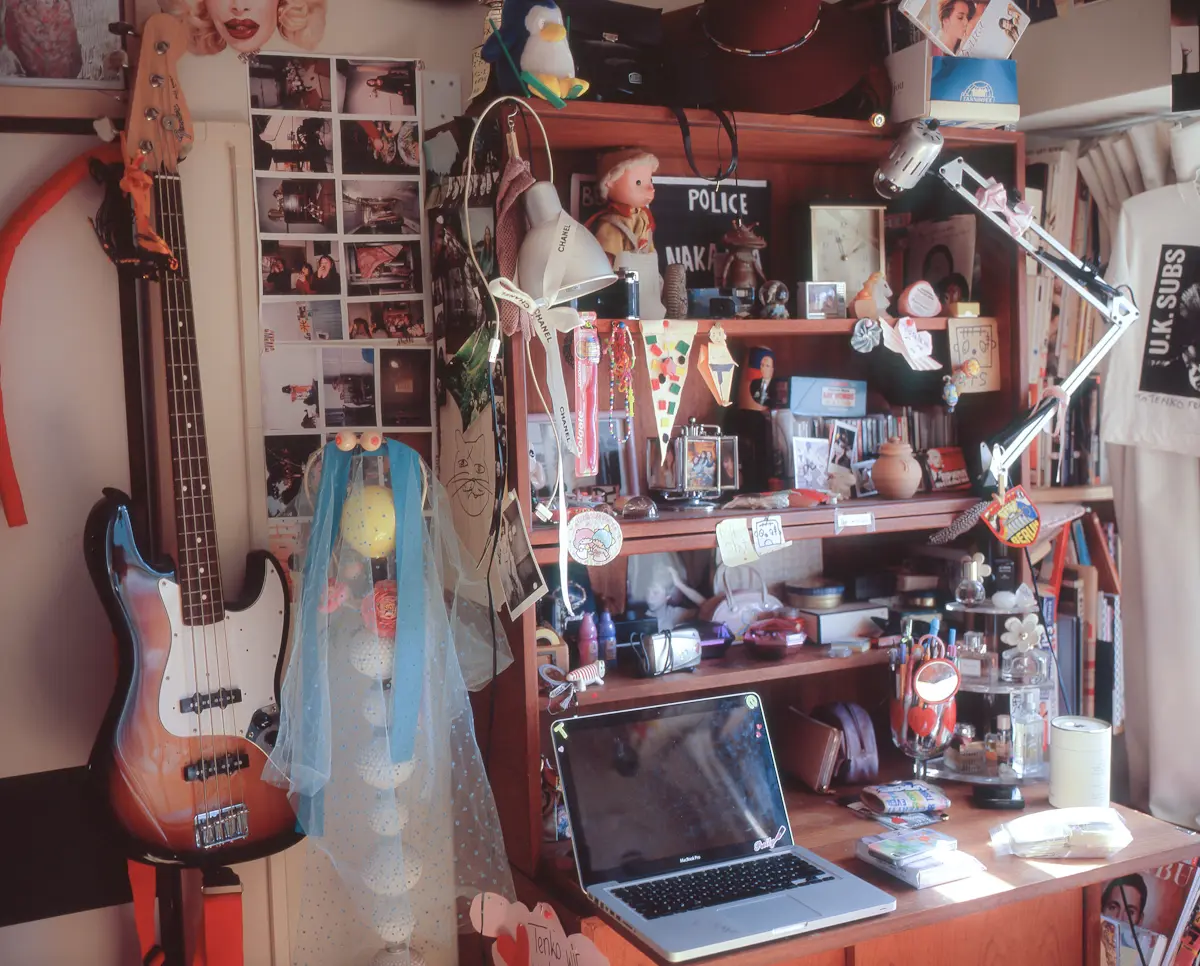
After so many years living abroad you returned to your hometown Tokyo. How did your perception of the city change?
Hanayo: Tokyo is not a city that opens up to you immediately and my perception has always been different because I grew up here. I never really looked at the city. After I lived in London and Berlin I realized that people make cities with their ideas. When I came back to Tokyo I started to see the city. People always say Tokyo is this modern metropolis full of technology and skyscrapers but I feel different about it. For me Tokyo is like a jungle. There is a sort of nature even there is not much earth or green. We still use the old streets back from ancient days. That is why I hate Shibuya station, it’s a scum and different from other parts of Tokyo. When I walk around a little street I have this view about Tokyo during the Edo period because all the streets are still connected to the landscape.
And even Tokyo is not “green” you always find a little corner with flowers because people care so much about it…
Hanayo: Yes, that’s true! I feel like people are more connected to the old times, more primitive in a way.
It must have been a great experience to encounter the city again?
Hanayo: Yes! It has a lot to do with the life period you are in. When I was younger of course I wasn’t interested in how the city is structured and I wasn’t interested in food. Now, all this becomes more important. But I have to say I miss my flat in Berlin (laughs).
Well, tell me about it (laughs).Tenko, did you two always speak Japanese with each other?
Tenko: Yes, always.
Hanayo is offering all kinds of beverages to us, Cafe au Lait, tea, beer and the conversation drifts away to the fact that there is no other country where people drink so much beer than in Japan. We all agree that we never drank as much beer in our lives before and that Japanese beer is by far the best.
I sometimes feel like all the stereotypes that are attached to Germany they are even more valid for Japan. Being punctual, being structured, drinking beer….
Hanayo: Nooo, Germans are much more punctual! Tenko: No, I would say Japanese. But maybe only because I grew up in Berlin.
Have you been to Tokyo many times before you moved here?
Tenko: I used to come here every winter because German winters are so terrible, so it wasn’t completely new to me. Except the entire school life that was completely new . Very new! Not that anyone ever told me that marching and singing the national anthem was bad but when you grow up in Germany you simply don’t become nationalistic about your country. It was super weird for me to sing the anthem here and we have to do this hand move as well. I really thought this is a joke.
Is it a Japanese school or international one?
Tenko: No it’s a strict Japanese private school but they have an international class. So most of the kids are Japanese but they lived abroad. It’s a pretty old school so that is why it is so strict. But I started to like it, it’s not that I can’t handle it.
Are you working from home or do you have a studio?
Hanayo: I have a studio in Nakameguro, but it’s more like a sharing office with friends.
If you don’t mind I would like to go on a little time travel?
Hanayo: Yes, sure.
You went to art school in Tokyo for a few years but never finished it…
Hanayo: I started the Geisha education and university at once and that didn’t work out.
So when you get trained to become a Geisha you have a schedule with classes?Hanayo: It’s very hard. You have to get up early in the morning and then you have many different lessons. You learn how to do the tea ceremony, how to dance. Oh, in the first year I had to learn so much because I haven’t had any background. Drums, Shamisen, singing, everything!
Can everyone become a Geisha or do you have to pass a certain test?
Hanayo: No, it’s not like that. It’s like becoming a Kabuki actor, people just start learning and then they keep learning all their lives. My case was a little bit different, I started when I was eighteen which was pretty late, so they wanted me to become a Junior Geisha very fast. I was doing ballet for a long time so I was able to learn certain things fast and my learning period for dancing was only seven months. But that’s only the start you continue learning all the other disciplines.
That was in Tokyo?
Hanayo: Yes, in Mukojima. It’s in downtown, a very pretty area. If we have time I can show you around. It’s near sky tree.
Does the place still exist?
Hanayo: It changed of course. I experienced two Geisha towns first in Mukojima and then in Shibuya where there was also a small Geisha area but this one doesn’t exist anymore.
You said before, that usually you would start training when you are 13/14. Is it still like that?
Hanayo: In Kyoto. But in Tokyo that’s impossible because of the law. Kyoto is special.
It’s funny to sit here with you and talk about this time of your life, I really have no image about how that must have been…
Hanayo: I will show you some pictures from this period if I find them…
Hanayo is looking for her pictures and shows them to us.
Is it a lot of public events that you have to take part in as a Geisha?
Hanayo: Yes, because during that time nobody way a Junior Geisha anymore. So every day I had to go to events and parties.
That was in the 80’s?
Hanayo: Yes, end of 80’s.
You probably told this story a million times, but how did you end up coming to Berlin?
Hanayo: I didn’t really want to stop my life in Tokyo but I also missed going out with friends. As a Junior Geisha you have to work from 6am until 11pm from Monday to Friday and I did it for seven years in my best age. I was also doing music at that time so I had different interests that I haven’t had time for. And then I met Tenko’s father and he wanted to stay in Japan but then I got an offer from London to be in a band.
What kind of band?
Hanayo: A punk band. They were quite famous and had a deal with Sony “The Daisy Chainsaw”.
Do you still have contact to other Geishas you were working with?
Hanayo: (laughs) Yes, I just visited her.
Tenko: She is 80 now and you really should go to her house. It’s this very tiny apartment with everything in her reachable area, everything piles up and somewhere in there she has a bed. Little animals come in and even she doesn’t know what kind of animal it is she would feed them.
Hanayo: I remember when I was a Junior Geisha and she came in crying because her pet died. Her pet was a fly. I always thought a fly might live for a year but this fly lived for a long time and became a part of her live. She was so sad when it died and everyone around her was so touched as well. We made a little funeral for the fly at three o’clock in the morning. She is really one of the last Geishas from the old tradition and a very famous Shamisen player. But actually what I wanted to tell you when I was doing a lot of practice, working in Mukojima I got hired by an old restaurant. It’s a very old traditional way for a Geisha. First you are in the school and the school has to pay a lot of money for you, for the kimono, the education etc. When you debut you look for a sponsor and then the school gets money from the sponsor. That’s also the reason why this entire culture is going down because it’s so expensive.
Was it mostly Japanese customers?
Hanayo: Well, if you have foreigners over that was the place to bring them. The restaurants I worked for was one of the most traditional and old restaurants I met a lot of important people through the place. Politicians for example. Sometimes you had to leave the room because they talked about something important, but they never send me out because they thought I am just a little girl.
Tenko: (laughs) You could have started a Wikileaks project.
And you didn’t have to sign any contract or papers?
Hanayo: No, that’s not the Japanese way. Of course as an European you would think that when you spend so much money there should be something like a contract. But the restaurant only told me that I have to work there at least for three years, that was it.
So when you moved to Europe your lived changed 100%?
Hanayo: First I moved to London for the band and the record. London was not a mind-blowing difference for me because I already knew the city. It was more the time of the life being pregnant that was exciting. And yes Berlin was different of course.
But Berlin during that time must have been pretty amazing?
Hanayo: I prefer now! Back then Germany was less international and everything was much more difficult for me. Culturally it was a great time, but living there as a single mother was very hard. No it’s more cosmopolitan. First I stayed in Hannover but I couldn’t live there. I was just walking on the street and the police would stop me because I was pregnant and had pink hair. They took me to the police station because I refused to show them my ID. Or when I was talking English on the train people would go “psst!”
How did you get to know Christoph Schlingensief?
Hanayo: He came to Tokyo in ‘93 or ‘94 and he bought my CD that I did together with The Black Dog because of the crazy cover. He contacted my label, but I was living in London during that time. He said that’s great you are in Europe please come to Berlin and we do something together. Through Christoph I met all these famous actors and artists. We were playing in the Berliner Ensemble, it was beautiful but I was wondering why they chose me they didn’t know me at all. Everything was total chaos anyways. That was ’97.
You became friends?
Hanayo: I don’t know if we became friends, yes I guess so. We worked together for two or three years. I didn’t really understand anything but it felt like I could do what I want.
Are you part of a project at the moment?
Hanayo: I released a tape recently but it’s not a new work. I realized that I didn’t publish in the last 10 years so we wanted to make a record but it was just too many songs.
That’s very funny at the interview I did last week I also got a tape. Apparently it is much easier to publish tapes because you can start with a very small amount….
Hanayo: Yes, exactly! I would like to have a band where I play but life in Tokyo is different. Nobody has free time and space for things like that. In Berlin everyone has, I miss it so much.
Did the two of you decide together on coming to Tokyo?
(both nodding)Hanayo: In the beginning I thought it’s not going to happen. Tenko said she wants to go, but I kept the flat in Berlin and I am still registered there. After the earthquake I really thought it’s better to go back but Tenko wanted to stay.
Hanayo talking to Gui: It’s crazy that you experienced the earthquake and didn’t leave…
Gui: Well, it really is home for me here. I lived here long enough to feel at home and I am not just going to leave because there was an earthquake. My life, my friends everything is here.
Hanayo: I mean now we know it wasn’t a bad choice to stay, but during that time…
Gui: I know it was scary. I left the country for a month I wasn’t sure about that either but the pressure from family and friends back home was so big. All my works got cancelled and I was in Tokyo doing nothing. There are so many things about the earthquake we don’t know and all this makes me upset but it’s difficult to just leave. It was very controversial because so many foreigners left and the Japanese got upset about it. Which is silly.
Tenko: We know quite a lot of Japanese people that left the country too because they felt like they can’t trust the government anymore.
Gui: But that’s a minority in Tokyo I don’t think that a lot of people think like that.
So Tenko it was a kind of your decision to come to Tokyo?
Tenko: Yes, kind of. I am half Japanese but have never known much about Japan so I thought I should go now while I am young. I also got an offer from an acting agency here and I really wanted to start acting. I thought it’s a good timing I have something to do in Japan and I learn something. At the same time it was super sad. I was 14 and just started to have fun in Berlin, so basically I was one footstep away from it and then “bye”.
Gui: It’s very true, it gets harder to choose where to live when you get older. The more you travel the more you see the harder it gets to choose and your heart starts to divide. If you don’t know anything it’s so much easier to be happy in one place.
Hanayo: But Japan is a kind of hard core place to choose.
Tenko: Yeah, it’s hard to adapt.
Gui: It’s true but then there is also something incredible here that is actually hard to point at. But my heart is always divided. I love Tokyo, but I also love Brazil and London. Sometimes I wonder if this is a good thing.
I feel exactly the same, you feel like you can live everywhere and that makes it so hard.
Gui: Yes, because you are never satisfied.
Hanayo: Some people really do that, just travel their whole life. I don’t know if I could to it.
Me neither, not having a feeling of belonging somewhere its’ hard to imagine. It scares me in a way but after six months living here I can easily picture myself staying in Tokyo and before I came I had no idea about the city. And this can happen everywhere, maybe I travel to Manila and I feel the same, I don’t know.
Gui: You adapt to the place and the place transforms you as well and you get caught.
Hanayo: I wasn’t sure if I could come back here, because I was so spoiled from my life in Berlin. First I was sceptical but now I am so happy I did it. Hanayo and Tenko, thank you for a lovely sunny afternoon in your little castle. To find out more about Hanayo’s work, visit her website.
Photography: Gui Martinez
Interview: Antonia Märzhäuser
